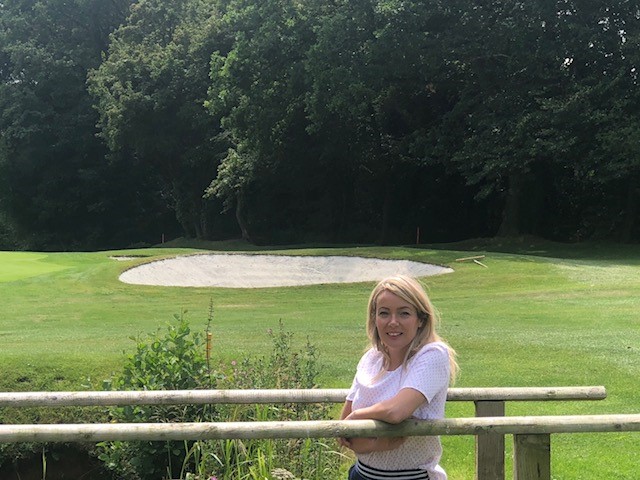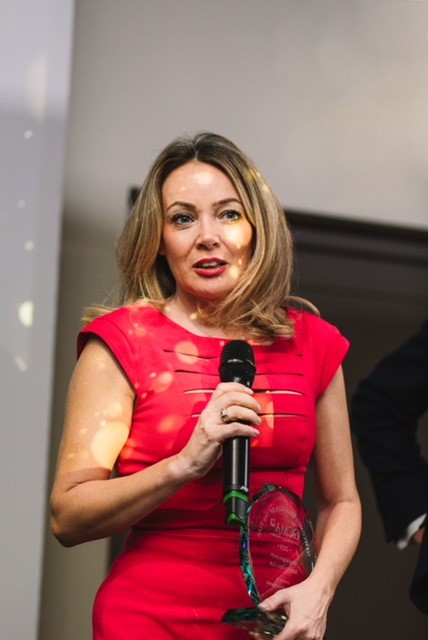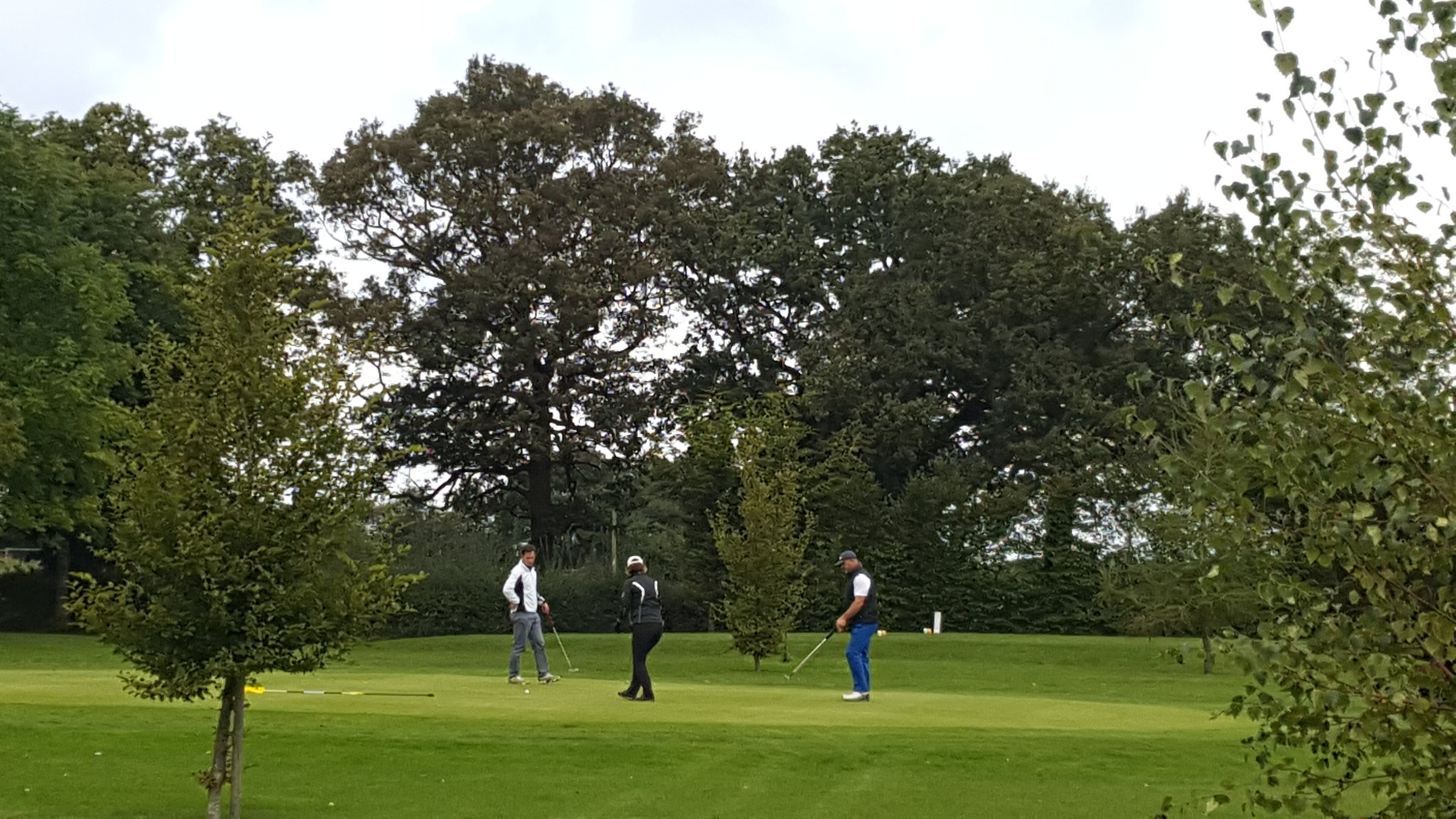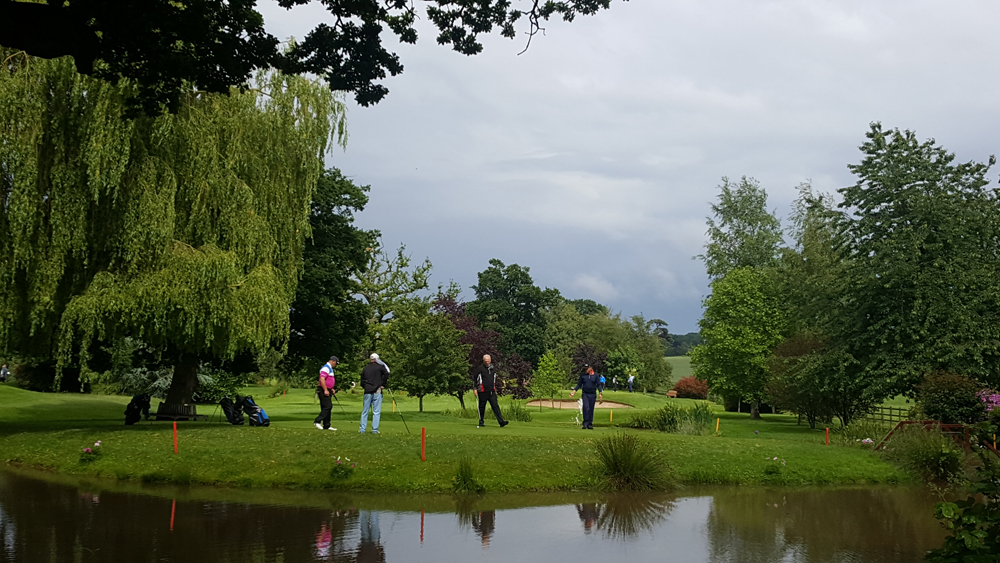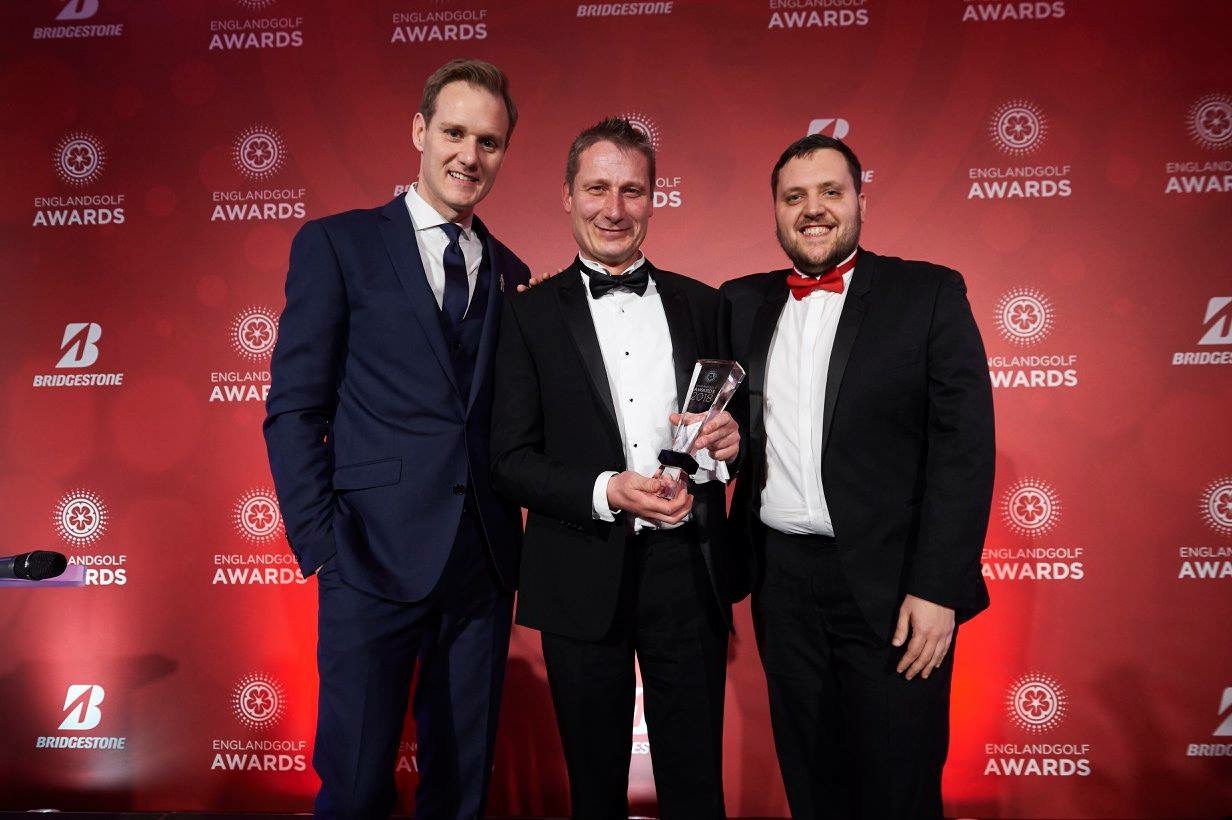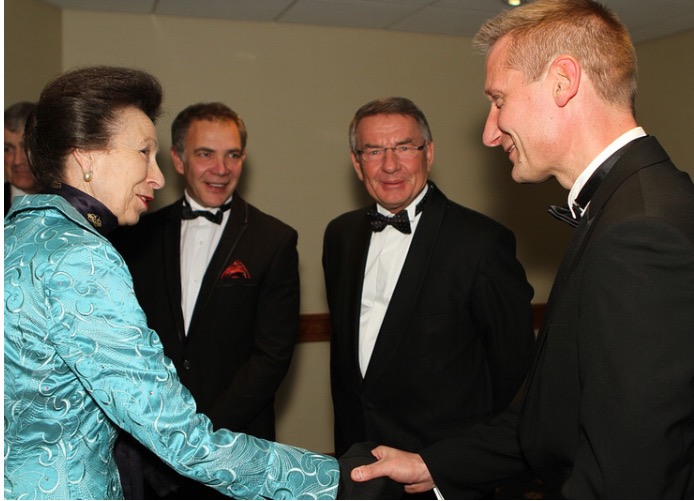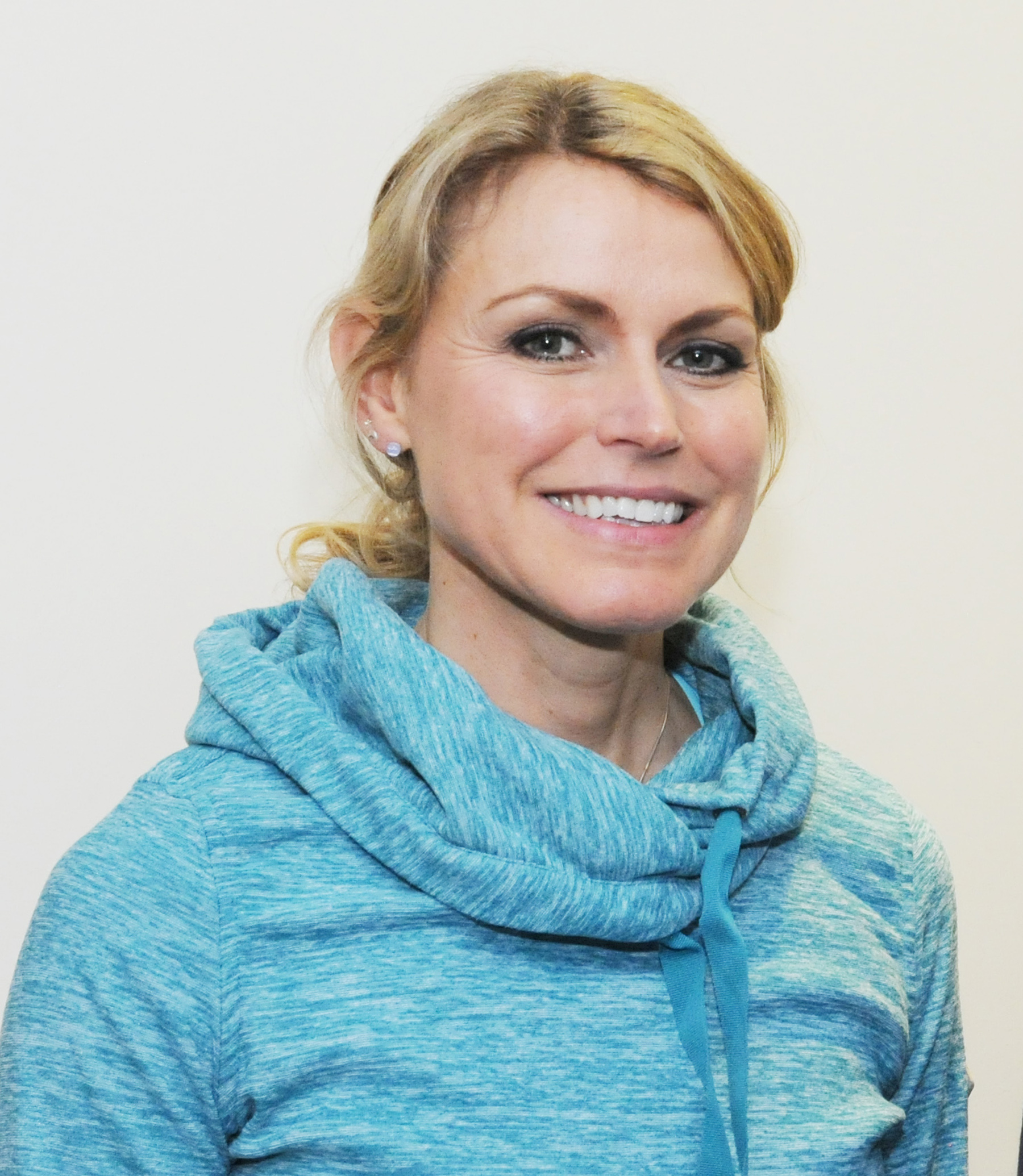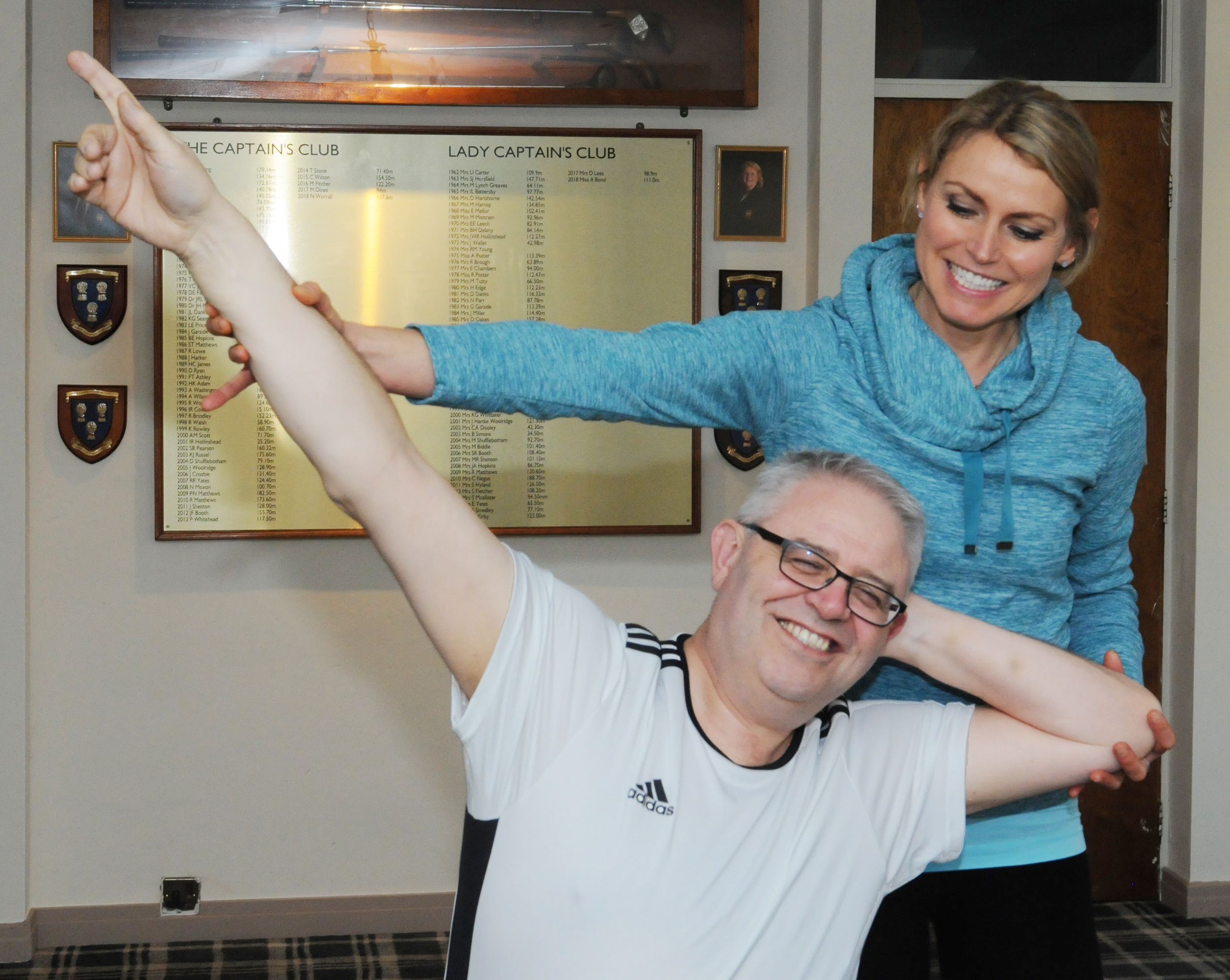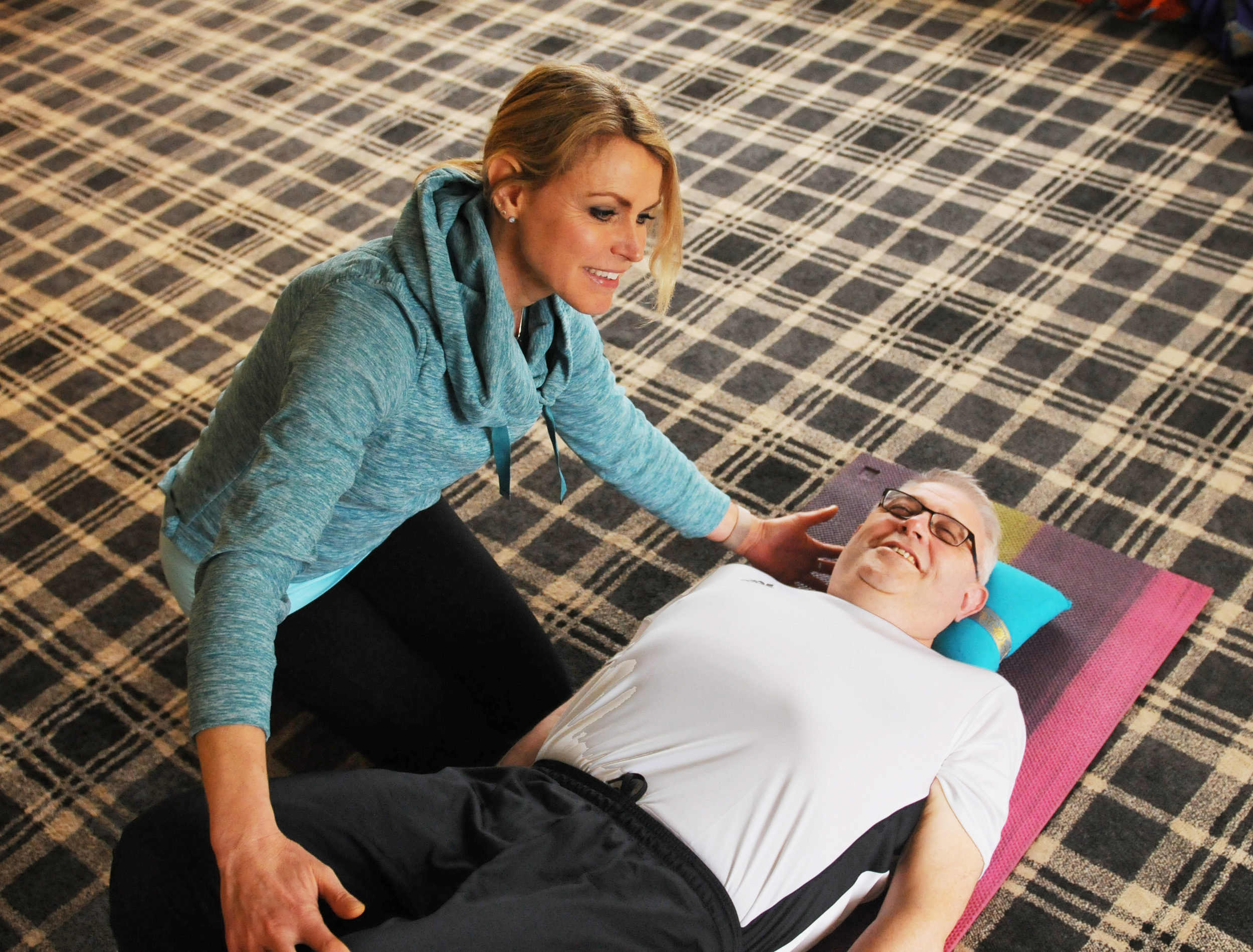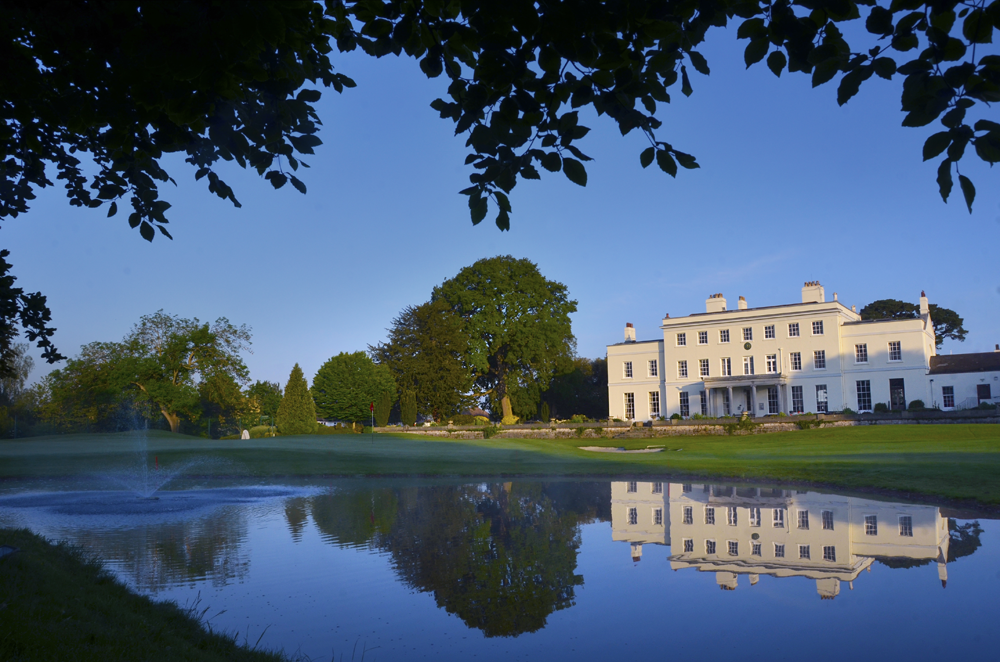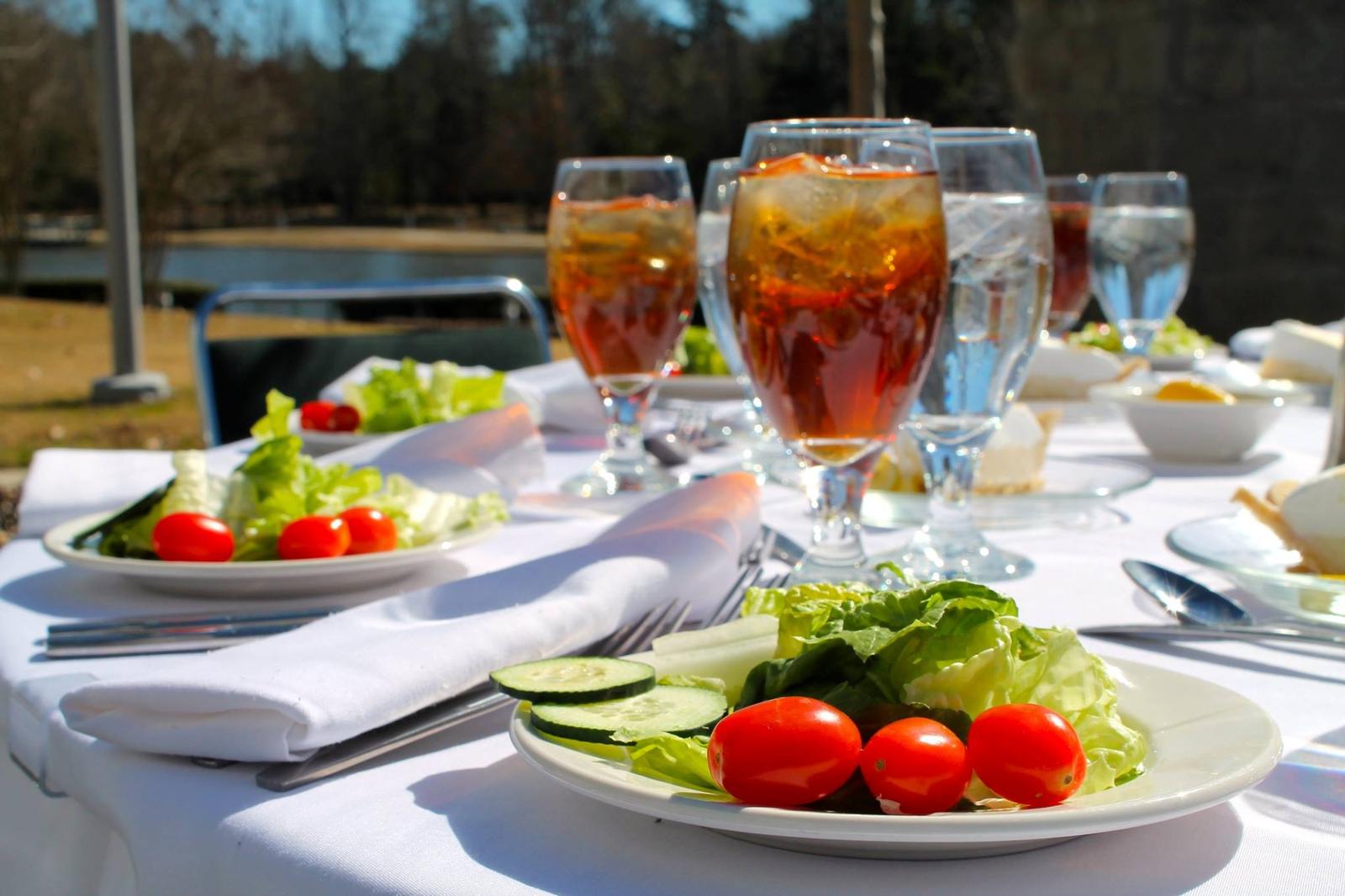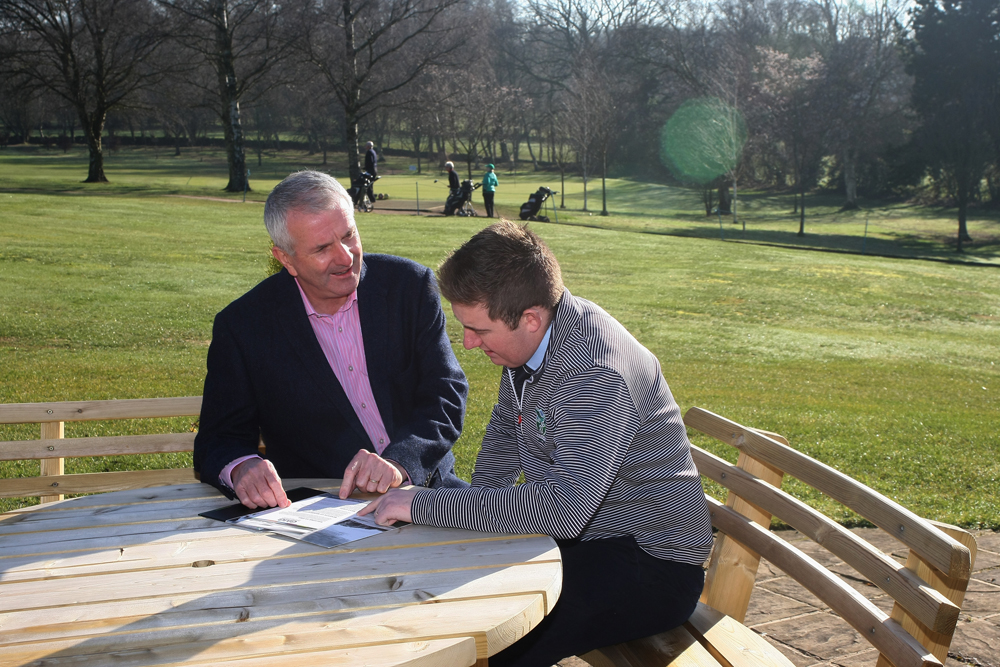GMG CREATE £3M BONUS FOR UK GOLF CLUBS
Midlands Golfer Magazine columnist Mark Stancer, unusually a member of both the PGA and the Golf Club Managers Association, is in his fourth successful year as the Midlands and South-West director of the Golf Management Group (GMG).
He’s the man who’s seen it all . . . from hosting Justin Rose on the day 20 years ago when he made his first Tour cut at the 22nd attempt . . . to now helping golf clubs save thousands of pounds a year.
You can take advantage of Mark’s advice in our magazine every month and if you have missed a column, they are all faithfully reproduced here.
Mark Stancer
GMG is a purchasing alliance working with 700 golf clubs across the UK in partnership with England Golf, Wales Golf and Scottish Golf.
Created in 2010, GMG has already exceeded £3m in savings for their clubs by bulk buying and managing contracts for items such as beer, wines & spirits, catering, energy, waste collection, washroom hygiene and insurance.
Justin Rose
Every month Mark is sharing his vast experience and answering questions from our readers across the Midlands region.
He mixed regularly with tour pros while Director of Golf at North East club Slaley Hall around the turn of the century and was a member of the planning committee for Slaley’s Ryder Cup bid.
Mark remembers Justin Rose spending so much time ringing round after making it to the weekend of the Compaq European Open he “thought his phone was going to melt”.
Golf clubs get a free first year’s membership of the Golf Management Group through GMG’s England Golf partnership.
For details, phone Mark Stancer on 07745 861 888 or email mark@golfmanagementgroup.co.uk www.golfmanagementgroup.co.uk
TEN things golf clubs MUST do to keep their customers happy
(PUBLISHED FEBRUARY 2020)
The most important lesson I have learned from 41 years in the business stems from two golden rules: Customer service is everything and members will be any club’s best salesmen. But only if they are happy.
If a golf club gets its priorities right, it will not need to chase new members. Existing members will eagerly renew their subscriptions and recommend the club far and wide.
Yet only if it is their “Happy Place”. Time spent at a golf club should be joyous and full of glorious memories. It’s time spent pursuing a passion.
It might be leisure time away from the home and family. If you prefer, your passion can be time spent with your family. What’s not to like either way?
Most golf club members need to see as many visiting players enjoy the course as their club can comfortably accommodate to keep the cost of their subs down. Or, in some cases, to keep their club in existence.
You think this is simplistic and obvious? If so, why are the numbers of UK golfers and clubs dwindling? Is it partly because visitors can sometimes be made to feel unwelcome ? Sadly, most golfers know know the answer to that question.
Crucially, despite what some of the dinosaur minority among golf club members might think to the contrary, no one sort of golfer is more important as a paying customer than any other.
That is the case whether you belong to a club, whether you have joined a golf society or whether you play when and wherever you choose.
More than twice as many people play the game regularly who are not members of golf clubs than those who are members.
It’s a given any course is in tip top condition, all day every day! So here are ten factors every golf club has to be aware of to survive and prosper:
1) BE HAPPY
Always create a warm welcome all the time without exception in the pro’s shop, the clubhouse and on the course. Laugh and the world laughs with you.
2) BE DIFFERENT
While the new Wembley was being built, the England football team played home games at various grounds including St James’ Park in Newcastle. They stayed at Slaley Hall, a golf and leisure resort which has a football training pitch.
At the time Slaley, situated out in the Northumberland wilds, had no junior golfers.
During the school summer holidays Slaley combined “Get Into Golf” sessions for youngsters with football coaching “on the pitch used by David Beckham” and advertised in the regional golf magazine and newspapers.
Youngsters came in droves for the football while getting a chance to try golf for the first time. Slaley quickly created a thriving junior section and won the county junior league within five years, which is quite some return on advertising investment.
3) MAKE MEMORIES
Golf clubs should canvas their membership to discover ideas for unexpected events, stunts and experiences and pick the brains of staff . They will soon find out what they already do well and identify opportunities for improvement.
Introduce the element of surprise into planning. Create lasting memories of a “Happy Place” which brings customers back time and time again.
In the clubhouse and on the course clubs can be creative with ideas which encourage golfers to interact, such as a barbie at the halfway house, cookery demos and cocktail making lessons.
4) INVEST
Say you are a member somewhere. When was the last time your club hosted a trick show or an an exhibition from a top player, maybe a senior tour player?
It’s affordable, and the player will have entertaining stories to leave a memorable experience with members thinking “just fantastic”, this is a club that’s trying.”
5) PICK A TEAM
Accountants will tell you goodwill does not show on your balance sheet. Technically correct. However in reality all paid staff and volunteers at a golf club represent an investment in either time or money or both.
Every team member needs, one way or another, a precise job description to define their exact role in delivering the best customer experiences for members and visitors.
6) BE CONSISTENT
All staff need to find a repeating standard for a golf club and deliver the necessary consistency. Making it happen day to day, come rain or shine, presents challenges as the team all need to be on the same page and sing from the same hymn sheet all day every day.
7) SPOT TROUBLE
Some roles will be small but significant yet a golf club can’t afford to have even one sour face among the staff. That’s an expensive liability.
Clubs need to be be highly alert from the start when they recruit. I learned early on when finding new members for a team that while you can train skills, it is much more unlikely you will be able to turn round a bad attitude.
As for any members who put visitors off in any way, clubs need to find a way of managing those characters even if, after all warnings are ignored, the only way is the highway.
8) GET HELP
There is a lot of complicated paperwork and IT demands created by the variety of tasks involved in running a golf club. Clubs should outsource and find assistance with key admin tasks such as Health & Safety, Purchasing and Human Resources.
This will pay dividends by freeing key team members to focus on the things that matter most – exceptional customer service and customer experiences.
There are dedicated golf industry companies to help clubs develop and avoid expensive mistakes.
9) MAKE A NOISE
I hire a PR guy, Tim Taylor, for expert publicity advice and copy writing (he’s ghost written this column after interviewing me) as well as doing my own marketing.
If a club has members involved in marketing and/or any form of the media, they should ask them to help with publicity and promotions.
Clubs need to get a message out there. This will add to those member testimonials I mentioned earlier, especially on social media.
10) ENTERTAIN
Golf is in the entertainment industry. We should all be trying all the time to put on a show, a performance. A club has to do everything it can to let people know every time the curtain goes up on something new.
If a golf club makes the customer journey happy, that will snowball . . .
POCKET ROCKET SHOOTS FOR THE STARS AT REDDITCH
(PUBLISHED JANUARY 2020)
Kerry Alligan-Smith, a former British dancing champion nicknamed “the pocket rocket”, has helped to send the annual income of the Redditch club in Worcestershire soaring over the £1m benchmark for the first time.
Redditch have marginally increased profit for the second year running and forecast total incomings of £1.1m on the next balance sheet, around £250,000 more than the previous financial year.
So it is no surprise Kerry, appointed general manager just over a year ago, has been chosen by a national body, the Golf Club Managers Association, as their Newcomer of the Year.
And if you Google the words Girls Golf Rocks – England Golf and look at the video, Kerry’s is the first face you see. Hers is also one of the voices you hear articulating the success of the campaign, which is another compliment paid to Redditch by a national golf body and an excellent on-line promotional tool for the club.
So that’s a triple whammy to kick-start 2020 for Redditch and 40-year-old Kerry, whose previous high level corporate career in London had involved banking, media sales and shopping centre management plus setting up the outdoor events space at Olympic Park following the 2012 Games.
Born and brought up in Buckinghamshire, Kerry has also worked with the football body UEFA and the Tour de France. After falling in love with Stuart Smith, the owner of a Worcestershire based business recruiting property mangers in the residential sector, she moved to Redditch 20 years ago following an 18-month long-distance romance.
By that time Kerry had already acquired her “pocket rocket”, nickname, such is her capacity for getting things done in the business world and also because of her height which, as she puts it, is “4ft 9in without heels!”
Kerry was a champion Irish Dancer as a youngster before a car accident ended her hopes of a show business career. Her daughter Penelope started dancing in 2017 so Kerry gave dancing another try in her late thirties, won the British Irish Dance Championship in 2017 and came third in the 2018 World Championships.
Arriving in the golf business at Redditch as a non-golfer later in 2018, Kerry was fully conversant with the demands of creating a customer experience and equally familiar with an environment in which every day is different. She is also highly skilled at implementing health and safety and HR procedures.
Used to dealing with builders and lawyers – even judges when handling court orders – Kerry has proved well up to the task of inspiring the required Redditch GC business model.
This is a club where everything on the premises is done in house rather than farmed out and nobody is self employed, not even the PGA professionals.
From a revenue perspective, Kerry has everybody working as a team and meeting together regularly to make sure individual goals are all geared to the same marketing calendar. The captains continue to put on their events and the club staff ensure all events are integrated.
Thanks to Kerry’s backing, Redditch’s eventual enthusiastic participation in the Girls Golf Rocks campaign has resulted in such an increase in group sessions by club members of both sexes the club now has two coaching pros and the number of junior girl members has risen from two to ten.
I asked Kerry why she took a massive drop in salary and gave up the buzz of such a successful career in London. She said: “Commuting that distance meant getting up at 4am every morning and, on a good day, getting home between 9.30 and 10pm.
“I have two young children, Penelope and her brother William, and it reached the stage where I stepped back and thought there is more to life than living to work.
“Having not been brought up in Redditch I had no circle of friends in the town which is my home. All my friends were either work colleagues or clients.
“The career switch has given me the opportunity not only to make friends locally but also to have a good balance between my work and social life. I can walk out of the golf club and leave it all behind me when I drive to my home five minutes down the road. But I still get up early – I always like to be the first into the clubhouse every day.”
My main involvement with Redditch via the Golf Management Group has been helping the club cut costs on their waste disposal by 8%, although I am delighted to be one of the business pals among Kerry’s wide network of influential contacts.
I can see why she has been such a success. Kerry has immense charm, is very much a people person and always remains very much to the point in keeping things simple and succinct when you negotiate with her. I have never seen her in anything other than a welcoming mood.
The Redditch club was founded in 1913 and golf is a sport with many attractions. Unlike football, cheating is actively discouraged and unlike athletics and cycling, ours is a drugs free zone and therefore a safe space for youngsters to flourish.
But at any sports club with over a century of tradition, there is a danger of being smothered by what I would call the smog of bureaucracy, a way of doing things which can sometimes get in your way. While maintaining the more appealing traditions, it can be difficult to keep up with the times.
When you are in Kerry’s company discussing anything, then before you know it you have the answer to any questions you are raising. You can see she is not deliberating and not feeling fettered by some unspoken protocol.
Frequently, when I start explaining what GMG do for golf clubs I am told “oh yes, I shall have to come back you” because the person you are speaking to has not let on beforehand that they do not have the authority to make a financial decision.
Kerry’s background in big time sport means she is comfortable with working to strict deadlines because the sort of major events she has been used to dealing with happen on specific dates and will not wait for you to get your act together. They happen whether you personally are ready or not.
Looking in from the outside the club, I would guess Kerry hit the ground running when she started at Redditch and that she has a highly supportive management committee who quickly found out they could happily let her crack on with making big decisions.
SEVEN IS HEAVEN ON A CLUB COMMITTEE
(PUBLISHED DECEMBER 2019)
EVER driven past a private members golf club on a beautiful weekend afternoon during the summer and wondered why the fairways are virtually deserted, rather than full of happy smiling people making the most of a golden opportunity to have fun in the sun?
Winter months are the best time to plan well ahead and think about solving such an alarming problem by means of using your club AGM to make rule changes.
Many clubs don’t allow visitors or golf societies to play at weekends because members want to retain a long established right to turn up and play after competitions for an available ad hoc tee-time if and when it suits them. Or clubs put up prices at weekends. Or both.
Yet these days more than twice as many golfers who play regularly are not members of clubs as those who are members. Many clubs need more visitors to keep increases in subscription prices down to a minimum for their members.
The eerie tumbleweed of empty fairways on a sun-kissed weekend afternoon date back to what members used to feel entitled to expect, as against the reality of the way things are now.
It was something members bought in to when they joined during the heyday for golf clubs. That was a time when the club secretary could well point to a waiting list and say: “Sorry, it’s going to be five years before we can consider you for membership because we are full.”
That conversation has pretty well gone away completely and most clubs cannot afford to be so rigid. Now, if you don’t do so already, you will probably need to consider offering a pay as you play facility for visitors at weekends.
Depending on demand, it is worth introducing flexibility in terms of charging higher prices at weekends, perhaps even making no price differential at all. If you decide on any changes, then you must make sure all the potential customers on your doorstep are made aware of any attractive offers.
Incidentally, given Monday is usually the slowest day of the week, how about offering a free drink in the clubhouse for a visitor on that day?
While there is no such thing as an average golf club, in general the sport has been slow to solve such problems and members tend to be reluctant to vote for change.
In business, you address any issue rapidly. Or else. Mothercare in the UK was a far bigger brand than golf – even in that long gone heyday for our sport – and look what happened to them as the consequence of choosing not to be proactive when trading conditions altered.
If your club is resistant to change, it may be you have a committee of around 15 people or more which in normal circumstances is excessive. Your club might want to think about a proposal for your AGM along the following lines:
“The committee will be reduced to seven and will consist solely of members whose professional qualifications and experience prove they will be proficient and an asset in the following areas . . .
“Golf course upkeep, PGA pro’s shop services, clubhouse facilities, law, finance, Human Resources plus PR/sales and marketing.”
HR and PR tend to be overlooked by the sport at club level although both internal and external people skills are vital when it comes to delivering a high level of customer service and, of course, it is essential you get your message out there.
OK, all this sounds black and white in the extreme and is intended as a subject for discussion rather than an edict set in stone. But it flags up the direction your club may need to take.
This will certainly concentrate the mind when it comes to out sourcing if you need to, because putting your hand up and asking for help can sometimes be a difficult step for a private members club to take.
For example, there is a lot of resource deep in England Golf. So it puzzles me more clubs do not take advantage of their subscription by picking up the phone to make fuller use of the governing body’s excellent advice service.
Outside golf, most businesses have a vision in the form of a plan looking ahead between three and five years so seeds can be sown well ahead of maturity.
Golf clubs can get dragged down into so much financial fire fighting on an immediate basis, they don’t take the necessary time to draw a deep breath, metaphorically put their foot on the ball and have a look at the field of play around them.
You can’t just turn up at an AGM and expect to push important stuff through. Members need plenty of time to chew things over in advance so make the time and take the trouble to flag up main details.
Many a successful business makes the three Cs the No 1 priority . . . Communication, Communication, Communication. Keeping your email list fully up to date could be top of your to-do list in terms of members staying in touch with AGM proposals. Or with anything else.
Your club could already be fine with all of the above so below I have drawn up a check list of what hopefully you will regard as a fairly comprehensive agenda for a typical golf club AGM.
In no particular order, these are all issues I have dealt with during my 40 years in the business.
Many of these areas are also presented to me regularly now I am a cost cutting consultant to more than 100 clubs across the Midlands and South West in my role as a director of the Golf Management Group:
Playing
Highlights of notable performances on the course and those that have had greater success further afield.
Membership Numbers
For both men, ladies and through to the junior ranks, highlighting plus or minus growth in numbers against the previous year.
Golf Course
Condition and maintenance report. Reporting it was accessible for members and visitors at all times whilst being presented in tip top condition.
Rounds Played:
Number of Member, Visitors, Groups and Society rounds plays together with the evaluation/analysis of the % occupancy to the overall revenue achieved.
Clubhouse
Food and Drink service and revenues will be debated whether this is a service delivered by a franchisee or whether the club oversee and run food and drink as part of the in-house profit and loss.
Finance
Copy of the profit & loss and balance sheet for the previous financial year will have been made available to the members before the AGM, giving members sufficient time to scrutinise the club’s performance and decide whether the club achieved the desired outcome by making more than they achieved in spending.
Members Subscription Revenue
Was there sufficient to allow member exclusivity at the club (unlikely these days) or was there a requirement to supplement revenue with visitor income and group and society golfers?
Functions
Weddings, Wakes, and any other revenue stream (Function) that may be worthwhile and accommodated. Good management will identify if there is room available to accommodate the right business in the right quantities at the right price at the right time.
Personnel
Greenkeeping, General Manager, Administrational, Bar & Catering, Service staff, Professional, Guest services, Cleaning and potentially, Starter and Course Marshall, Driving Range attendant, Security and other.
Certainly will be the biggest asset and expenditure undertaken by the club and an asset that will decide the fate of the clubs future, if not duly engaged in the strategic path and plan of the club.
Outsourced Services
Legal, Human Resource, revenue generation, expenditure control and controlling of contracts.
Sales and Marketing
Notable achievements and events that where staged by the many volunteers that may have achieved a worthy mention as to their financial contribution to club funds; The Summer Ball, Fireworks night, Christmas Party.
Property & Maintenance
The upkeep and maintenance of clubhouse, Greenkeeping compound, machinery, irrigation, pumphouse, borehole and or/ water supply, boundary and grounds beyond just the golf course and any other ancillary properties that belongs to the club.
Strategic Change and Development
Proposals for change; amendments or changes in the clubs constitution; governance from Committee to Board of Director changing from outsourcing the catering to managing in house will all most probably require a (vote) show of hands / approval from the audience of the AGM. Even things like amending and changing the dress code may need to go to a vote, it could be a club rule.
Any Other Business
Always the highlight of any AGM, Members will have had the opportunity to request (Usually in advance) questions to be raised about any aspect of the club.
From raising capital and selling unused land for development through to day to day operations and governance of the club.
An EGM (Extraordinary General Meeting) may be required prior the AGM enabling the approval of a proposed change to be represented at the AGM for final approval and member voting. Then there will be a requirement that a votes will need to be counted and ratified.
Planning
Making changes for the year ahead will need to start 18 to 24 months ahead of the due date. Around 90% of what you want to change will need to be unpicked from the Club Constitution or/ rules, rewritten and presented to an EGM.
You need to gain sufficient confidence and understanding from the membership to receive a successful vote of acceptance at the AGM.
GADZOOKS, IT’S GOLF SIR . . . BUT NOT AS WE KNOW IT!
(PUBLISHED OCTOBER 2019)
Just loving it in Leicester at the home for carefree golfers
If you are of a certain age and among a dinosaur minority of traditional golf club members, you may think kids should be seen but not heard and that a woman’s place is in either the kitchen or the bedroom. If so, don’t go to family-friendly Leicester Golf Centre.
No members. No rules. No dress code. Nine holes. Play As You Play. A floodlit 16-bay driving range . . . and laying claim as the outstanding start-up of the year now the chairman of the R&A, Ian Pattison, has sent owner Anders Mankert a handwritten note to say he has such a “brilliant” set-up he will drop in if he is in their area.
Ian wrote to Anders after seeing a video about the golf centre online, saying, among other things, “I just had to sit down and send you this note. I think it is absolutely brilliant and what you are doing is just great. Very many congratulations and keep up the excellent work getting new people into our sport.”
In terms of giving the public what they want the golf centre, situated 15 minutes from the M1, can count over three million golf balls hit on the range since starting business on October 13, 2018.
In the four months of average weather following this year’s opening of the Gallops Course, which winds around Leicester racecourse, more than 5,000 nine-hole rounds were played.
They’re so busy Anders has had approaches from two pub chains, a hot tub operator and a barber. He’s also investigating the feasibility of a crèche, swimming pool, park and adventure golf course.
Owner Anders Mankert with son Oskar and daughter Matilda
Already he has created an annual one-day schools teams championship for youngsters who had never held a club before. The golf centre staff and the schools’ teachers relish every minute of the mayhem involved in looking after 300 joyous boys and girls pitching up to use plastic clubs.
The 44-year-old Anders, a PGA Advanced Fellow, is Swedish born and was educated in his home country as well as England. After a golf scholarship at the University of Texas, he became a club pro in the UK.
Pro Tom James with some of the 300 youngsters at schools day
He has won two national awards for his coaching and rubbed shoulders with royalty. The many success stories from his famous scholarship programme include its first winner, the Northamptonshire player Ryan Evans, who came down from eight handicap to one in a year as a junior under the guidance of Anders and has since moved on to win on the Challenge Tour and compete on the European Tour.
Anders says: “There is little as inspiring as the deafening sound of kids enjoying themselves and the noise from the youngsters that day was off the scale. Chaos. But wonderful, magical chaos.”
Are women welcome? “The heart of Leicester Golf Centre is that we are female friendly because women bring kids and women bring the fun. Generally speaking and there are exceptions, golf clubs in this country are not particularly welcoming to non-golfing females. They tend to make them feel intimidated.
“My wife Pippa, who works with me at the golf centre, and her friends, who do not play golf, would not dream of turning up to a golf club for a drink in a million years. They would feel they are not welcome. Yet within ten seconds of any lady walking into our Greenhouse bar and coffee shop, she will receive a friendly welcome and be asked what can be done for her.”
Not content with allowing jeans and trainers, Anders welcomes builders playing in their workman’s clothes. He also encourages wannabe golfers who have never played the sport go round the course sharing a bag of clubs. “I say to them: ‘Have a good game and make sure you let me know how you get on.”
Perhaps this is a vision of what far more of the golf scene will look like in 50 years’ time. Yet before these current boom times for Anders, what used to be the 18-hole Oadby club lay disused for seven years.
Anders with Dan Walker at the 2018 England Golf Awards
In February 2018, he signed a lease to rent from the racecourse what was then 77 acres of foot-high grass, weeds, nettles and thistles. His 75-year-old father, Thomas, helped him lick the re-designed course into shape and still puts in a three-day week on the mower.
Wife Pippa, a microbiologist by trade, is the company secretary in charge of all admin, payrolls, policy documentation, health and safety and, says Anders, “pretty much runs the show behind the scenes.”
He added: “We started building the range immediately, importing 2,000 lorry loads of soil. The land on the nine holes we are using for the course is lovely, the other nine not so good for golf. It’s already enjoyable to play and we are in the process of creating a truly fantastic members quality course with a beautiful lay-out open to absolutely everybody.
“If you are a novice golfer, your opportunities of stepping on to such a course are incredibly limited unless you want to pay a fortune and possibly be asked for your handicap certificate and, if it is hot, be asked to wear the right coloured socks with your shorts.
“In what other business would this happen? You can arrive at a members golf club and see up to 20 signs before you tee off telling you what you can and cannot do. Can you think of anything more unwelcoming? I do not know any other industry able to provide such an uninviting atmosphere for customers and be allowed to get away with it.
“People ask me if trainers ruin our greens but banning trainers on a golf course is complete nonsense. These days the bottoms of most golf shoes look like trainers with their rubber dimples or pimples. Trainers do no more damage to a golf green than most modern golf shoes. It’s one of those silly rules in golf like the one which says you cannot wear jeans.
“Another of my pet hates is that you can step on a golf course not knowing whether you are going to get a drink when you come off. Our Greenhouse is open when our course is open, which is 8 am 10 pm Monday to Friday and 7 am to 8 pm at weekends.
“The nearest thing we have to a rule is our strong advice to anybody who plays here: ‘You’re here to have a good time so enjoy yourself, be respectful and have fun.’ As for golf club dress codes, what are they for? We let our customers decide, although I would draw the line at high heels on a golf course!”
In terms of what Anders has done for golf, he’s the best thing to come out of Sweden since Abba. Last year he became the first PGA member to receive England Golf’s Lifetime Achievement award, partly in recognition of his 25 years coaching blind golfers.
Three years ago he met Princess Anne when runner-up in the multi-sport Disability Coach of the Year awards and 10 years ago triumphed in the coaching category of the Best of UK Awards, which involve many walks of life including music.
Anders with Princess Anne at a national awards night in 2016
Clearly there are aspects of what Anders has created, now he has fulfilled a long-held ambition to run his own show, which will never happen at a members club. Equally clearly some clubs could learn from his mantra of “customer service above all.”
To paraphrase and turn around the words of the late great American president John F. Kennedy: “Ask not what you can do for your golf club – ask what your golf club can do for you.”
PMG LIGHT UP THE PATH TO PROSPERITY
(PUBLISHED SEPTEMBER 2019)
After 40 years in the golf business, it takes a lot to surprise me. But the stunning impact my July column made on myself and others – even outside the circulation area of Midlands Golfer Magazine – has made me stop and think hard about the best ways for golf clubs to attract members.
The following discovery about the age profile of members recruited through the PlayMoreGolf points system around the UK keeps flashing up in my mind, like a neon sign illuminating the golden path to a prosperous future . . .
“At a time when the various revenues via senior sections are keeping some clubs afloat, the average age of a PlayMoreGolf golfer is 17 years younger than that of a traditional golf club member.”
I also wrote in July: “This is staggering. It amounts to a whole missing generation of golfers and it is no wonder traditional golf clubs are short of members in their twenties and thirties.”
Those words have created considerable interest, not only at somewhere like Birstall in the Midlands, who have attracted 80 new members in eight months as a result of becoming a PlayMoreGolf club.
Thanks to the internet, the readership of this column stretches far and wide, including places such as Withington in Manchester where the golf club’s Marketing Director, Tony Longden, is an icon among the movers and shakers of the UK business world. He is Head of Product Marketing Management and Commercial Development for Santander.
Tony says: “I am definitely a fan of PlayMoreGolf because they are filling a vital gap in the market. Their points system appeals to regular golfers who would not get full value out of a full membership.
“I see PMG as a rung on the ladder to engaging players to become full members. The financial dynamics for most clubs are that they need help to entice people to play more and this is a halfway house between pay and play and full membership.
“Also, I made it clear to PMG from the start that long term I intend to convert their members into full members and they were fine with that. That sort of catchment opportunity attracting mainly casual golfers is a segment of the market which is key to growth and leaves me free to concentrate on full membership issues.
“I like the whole PlayMoreGolf concept and I like them as a company in that if I raise issues they are very positive and responsive. “I’m a fan of using their marketing to get people through the door. More celebrated clubs in our area like Stockport, Ringway and Delamere won’t need them but the likes of us and Chorlton do!”
Birstall’s phenomenal growth in Leicestershire since becoming members of the PlayMoreGolf family has inevitably led to them being held up by PMG as one of its major success stories.
Said Manager Jo Shepherd: “Our club is in the town of Birstall and the clubhouse is at the end of a residential street. A lot of our 250 or so social members are in the younger PMG age demographic who use the golf club as their local pub anyway.
“So the points system has been a great way of introducing them to the sport or in many cases returning to golf. We have pushed the scheme very hard indeed ourselves rather than relying on PMG to do the marketing for us, working on targeting past members and those existing social members.
“When they do join, we make sure the PMG members are just as entitled as any other members to enter the main weekend comps and any other comps. All they have to do is ring the pro’s shop to book in.
“Our existing members were a bit funny about it at first but they have embraced it now. The reason we started PlayMoreGolf in the first place was with a view to hoping to convert the newcomers into becoming full members.
“Even using a conservative estimate, we are confident that when we complete our annual membership renewals in January 2020 at least eight of the 80 PMG golfers will have upgraded to full membership.
“This is because they have got into the swing of it and have become hooked on playing the comps. Three of them have upgraded already.”
Like Birstall, Penn in Wolverhampton needed to reassure existing members the PlayMoreGolf points system works to the advantage of everybody at the club.
Secretary Mick Woodhouse said: “We have found PlayMoreGolf most beneficial, not least because of the satisfaction we have taken in winning over some of the existing full members who initially felt disgruntled.
“We had a meeting with around half a dozen of them and the main obstacle was that we do not have a booking system for tee times which caused obvious problems, until the admin manager started to send out time sheets for the various events and competitions to everybody.
“Also we pointed out a PMG member using points at peak times could pro rata be paying two or three times as much per round as a traditional member . . . and the more members we have, then the more we can keep rises in subscriptions down to the bare minimum.”
All the above compliments are a credit to PlayMoreGolf and their Sales Director Jamie Carroll, one of PMG’s founding directors and a former Membership Sales Director of De Vere.
I hope this year’s inconsistent and at times depressing weather has no adverse effect on your golf club’s membership in 2020.
If it does, and you want to start planning ahead now, I suggest scrolling down from here and taking a look at my July column about PlayMoreGolf, which I mentioned earlier.
It is headlined: “Value for money is the fair way to find new members”, explains how PlayMoreGolf operates and provides a direct link to their website.
Scroll down further and you will see an extra way of increasing golf club membership, something I wrote about in April. That column is headlined: “Finding new members is a question of sport.”
If you have read enough already, the direct link is www.playmore.golf
Either way, happy hunting!
JIMENEZ PROVES PILATES IS A GOLFER’S FLEXIBLE FRIEND
(PUBLISHED AUGUST 2019)
What do Jennifer Aniston, David Beckham, Lewis Hamilton, Madonna and Miguel Angel Jimenez all have in common with each other?
They enjoy Pilates and as a former golf coach – I am proud to still be a member of the PGA – this month I would like to use this column to encourage clubs everywhere to flag up one of the many health benefits of our sport.
A current trend at some golf clubs – raising funds by hiring Pilates instructors to put on classes in their clubhouses – is an add-on to golf membership which is essential rather than optional.
Not only because Pilates is good for business but also because, in many ways, Miguel is a flag bearer for the average golfer, although I am not suggesting a penchant for red wine and big cigars will make you a better player!
Because of his age and slightly rotund frame, millions of far less capable players can relate to this fantastic Spanish golfer. In my earlier years of playing professional golf, I suffered from debilitating back pain and 40 years on I still use the same Pilates exercises which got me through it.
Alison Farrall
Alison Farrall is pictured putting club barman Fred Bailey through his paces
The modern general trend for men and women from many sports to turn to Pilates or Yoga fits in well with our sport. Yet golf pros tend to fight shy of telling their students, even those have who strayed into the restricting realms of obesity, that flexibility is highly desirable.
So what can you learn from Miguel to help you improve? What has not been discussed too much about him is the time he has spent looking after his body by maintaining flexibility, mainly through the deep stretching involved in Pilates.
If you have not seen it, click on the link at the end of this column to see Miguel’s stretching routine. Believe me, it’s an eye-opener. Yet many of the golfers I taught did not have enough range of movement to create the in-swing technique they needed to function properly on the course.
Miguel almost looks too flexible for his swing to be repetitive and deliver the consistently high-quality ball-striking that he does so well, even now as a senior tour golfer.
Another benefit of undertaking a structured stretching program is limiting the chance of injury while playing if you wish to prolong your golfing years and increase or maintain your mobility.
Alison Farrall is pictured putting club barman Fred Bailey through his paces
Some clubs are taking this a step further if some of their members have back trouble and are running Remedial Pilates sessions as well the more normal Pilates classes.
For golfers in a less chronic condition, I would recommend the Titleist Performance Institute (TPI), which has an excellent website which provides essential information on the body and golf. The details are on www.mytpi.com
It may also be worth while discussing your fitness with the teaching pro at your golf club. Together, you can analyze your mobility closely and discover what is possible.
When I was younger I recall more than once from suffering from a bad back. Once in a tournament the pain was so great I only got as far as the middle of my backswing and could go no further.
After visiting various specialists an x-ray highlighted the true nature of the problem and I was told something along the lines of: “We can fuse those two vertebrae to prevent the disc moving against the nerve.”
I ran a mile. It was then I found Pilates, through a physio I was seeing at the time, at first very much remedial Pilates to gain the knowledge of how to look after my specific problem.
I do not hesitate to recommend Pilates, Yoga or any other form of exercise that helps you enjoy life and your game to the full. To find a Pilates teacher visit www.bodycontrolpilates.com or perhaps ask around among your members.
Pilates classes are in their third year at Congleton, which attracts many Staffordshire golfers and the professional, Mike Green, is among the students. Although the golf club is in south-east Cheshire, it is right on the county border.
In the still pictures illustrating this column, Congleton’s Pilates instructor Alison Farrall is pictured putting club barman Fred Bailey through his paces and here is a YouTube clip of Miguel loosening up . . .
VALUE FOR MONEY IS THE FAIR WAY TO FIND MORE MEMBERS
(PUBLISHED JULY 2019)
What’s in it for me? Am I getting value for money? The experienced and hard-bitten directors of PlayMoreGolf know why anybody would want to buck the trend and join a golf club, however easy it is to reel off many more exotic reasons for being fond of our wonderful sport.
This is an era when England Golf statistics reveal over twice as many men and women play golf regularly – at least twice a month – who are not members of golf clubs as those who are, with waiting lists virtually nonexistent.
Yet the PlayMoreGolf points system has this year enticed on average 382 new members a month to join their partner network of 170 courses in the UK. Pay a £325 sub and, depending on which of their clubs you want to join and how often you can play at off-peak times, this can work out at as little as £8 a round.
Yes, you get any bar discount on offer at the club you join. Yes, you can use the practice facilities. Yes, you get a CONGU handicap. Yes, you can play in comps if you want to. Yes, you can use your points to invite friends for a round.
Of your 100 points, you can use 80 at your selected home club and 20 Flexi points at any of the other PlayMoreGolf partner clubs in the UK.
Including:
It is no coincidence all the directors of PlayMoreGolf were part of De Vere in 2010 when the De Vere Club was launched. This was the UK’s first multi-course flexible membership.
In terms of increased membership, it was the De Vere heyday and over four years several thousand new members signed up annually. But following a period of acquisition, the 12 De Vere venues were separated and the points system discarded.
That led to the “Ex De Vere Execs Club” forming PlayMoreGolf in 2016 and by the time you read this (July 2019) they will have sailed past an initial landmark of 5,000 members.
One big secret of their success is that their system is as attractive to the clubs as it is to the golfers. “What’s in it for me” has to work both ways for any business to prosper . . .
- At a time when the various revenues via senior sections are keeping some clubs afloat, the average age of a PlayMoreGolf golfer is 17 years younger than that of a traditional golf club member.
- Any club interested gets a free consultation.
- Of the tee-times reserved by golfers who join a club under the PlayMoreGolf points system, 65% are off-peak.
Before taking a good look at the PlayMoreGolf website to prepare for writing this column, I had been unaware of that 17-year age gap between a traditional golf club member and a golfer using their 100-point system.
This is staggering. It amounts to a whole missing generation of golfers and it is no wonder traditional golf clubs are short of members in their twenties and thirties.
To get value from a traditional golf club sub, taking into account you have to pay for winter months and perhaps time spent out injured, you have to be on the course a lot in the better weather.
If you need to put in the hours required to pay a mortgage and/or bring up youngsters, the odds are that this is the time you do not have.
As much as all of us would like to go back to the days when golf did not need a business model because there were waiting lists almost everywhere of people waiting to become members, the pace of modern life suggests that will never happen again.
Also, like the PlayMoreGolf directors, I used to work for De Vere – at Slaley Hall in the North East. Although I found everybody there particularly focused on high-level customer service, to some extent this is the norm at most golf clubs.
Everybody who steps on to a course should expect the same treatment, whether they are a visitor there for one day or a full member of many years’ standing or a PlayMoreGolf member, who is paying their way just as much as any other members are. A member is a member and a customer is a customer. Full stop.
One of the hurdles cleared under the PlayMoreGolf system is that it offers such good value, no golfer feels they would have to cram in as much time on the course as possible to justify what can otherwise be as much as a four-figure outlay.
To find out more about this points system membership, visit www.playmore.golf
EVEN LORD SUGAR WOULD BE SWEET ON EXETER
Lord Sugar once hired an advertising agency with these words: “Win an award for the work you do for me and you’re fired.” As we all know, the bottom line is everything with his lordship yet undoubtedly even he would approve of Exeter Golf & Country Club ticking both boxes.
During the England Golf awards night at the Royal Lancaster Hotel in Kensington, Exeter was announced as 2019’s Most Welcoming Club in the Country, an accolade sponsored by the on-line golfing network HowDidiDo. Exeter’s answer to that particular question is “very well indeed”.
.
They have an 18-month waiting list for anybody wanting to join their 540 male golfers. There are 160 female golfers signed up, over twice the national average of 70. The Saturday competitions attract entries from around 180 players.
Yet it is inaccurate to describe Exeter as just a golf club. Situated a few minutes from the M5, they’re at the high end of the market and around 5,000 members of various categories can opt not only for golf but also the gym, tennis, squash, indoor and outdoor swimming pools, plus an award-winning spa and restaurant.
When you think of the skills and experience a golf club usually needs – greenkeeping, the pro’s shop and clubhouse facilities – the thought anybody could take on all Exeter do and still give golf enough loving care and attention to win a national award is mind-boggling.
So what works so well? Which are the main factors contributing to such success? Can a more normal members golf club, very likely without their financial resources, cherry pick from the ideas which suit Exeter?
They are one of the clubs I work with for the Golf Management Group so I picked the brains of their general manager Chris Jones, director of golf Darren Everett and marketing manager Jenni Ashford.
All three are as one in insisting the key to progress is change, to keep driving forward with new approaches and fresh initiatives plus devotion to the three Cs . . . Communication, Communication and Communication.
Exeter enjoys welcoming visitors and societies but does not chase them. Members’ tee times are valued, cherished and limited, there’s a members’ app, buddies to help newcomers settle in – both on and off the course – and free membership for over-85s.
As well as promoting the sport to non-golfers through Get Into Golf, free taster sessions and a growing junior section, Exeter launched a women’s golf initiative last summer with the focus on fun and friendship. This grew female membership by 20%.
It all ran in conjunction with the England Golf ‘Women In Golf’ national campaign, the club creating a series of videos and putting on a variety of newcomer-friendly competitions with the rookies playing alongside experienced golfers.
They place a huge emphasis on making the club open, accessible and friendly. With members ranging from babies to golfers in their 90s, they have a wide appeal across generations and some senior members have been members since childhood.
Subtle touches help Exeter to stand out from the crowd. Whenever England Golf visits a function or meeting, the chefs produce home made biscuits with the England Golf logo.
They regard marketing as of equal importance to the course, the clubhouse and the pro’s shop and fail to see how any golf club can possibly prosper without recruiting a marketing professional – even if only on a part-time basis – rather than leaving it to volunteers.
For instance, Facebook is no longer Exeter’s social media of choice, partly because of what they regard as excessively intrusive advertising. Mainly, though, the highly photogenic fun nature of golf tends to lend itself to the better illustrated and snappier ways of getting the club’s messages across on Instagram and Twitter.
Crucially, a happy team of staff leads to happy golfers. They invest in staff development such as “Celebrity Service” sessions with customer service guru Geoff Ramm, golf specialist mystery shopping experts at 59 Club, and every month reward a member of staff with a £50 voucher as Employee of the Month and Exeter Chiefs rugby tickets.
Whatever Lord Sugar thinks, I have first-hand knowledge of the buzz from outside recognition. During my time as director of golf at Slaley Hall in Northumberland, our team achieved a Top 100 ranking for the Hunting Course, once pipping a Ryder Cup Venue, The Belfry, at a time when we were both in the DeVere group.
What strikes me most about Exeter is that everything they do begins with the dynamic that customer service is the No 1 consideration. So if you are one of those golf clubs unlucky enough to have a small but forbidding minority whose attitude makes visitors feel unwelcome in any way whatsoever, then you need to be brave.
Most clubs need revenue from visitors and golf societies to keep subscription costs down, which helps to keep the other members happy. You can alter rules relatively easily, but it is harder to change attitudes.
In my opinion, if these characters ignore warnings, your golf club rules should contain a provision for getting rid of them. The loss of a few subs will be outweighed by the financial benefit of your club becoming more inviting as a result of their departure.
Let’s finish on an uplifting note and an example of fine marketing if you can spare one minute and 11 seconds. That’s how little time it takes to watch this video offering 60 reasons to love Exeter Golf & Country Club as well as our wonderful world of golf
CHEERS OR TEARS? HOW TO RAISE THE BAR ON YOUR F&B
Nearly every golf club I work with for the Golf Management Group wants to talk about reviewing Food and Beverage purchasing.
Most of them have tried more than one way to manage the operation and it can be expensive if you get it wrong. For example, the chef at the Maxstoke Park club in Warwickshire used to find himself in the local supermarket twice a week looking for special offers!
Things had to change and the then general manager, Andrew Gibbins, called me in during November 2017. It was a different scenario by the time Andrew left in January of 2019 to become the National Senior Club Relationship manager for PlayMoreGolf.
Andrew says: “Maxstoke Park were experiencing low and erratic profitability before GMG identified annual savings of around £14,000 across the catering supplies. From then on, the club were able to stabilise and increase profit margins.”
Maxstoke’s previous supplier delivered only once a week but the suppliers arranged through GMG delivered three times a week and provided consistency in the quality of the food. The chef had more time to spend in the kitchen rather than the supermarket and clearer and more consistent pricing allowed for better menu planning.
Rewards are there for anybody who gets it right and among other clubs thriving is Birstall in Leicestershire. The general manager, Jo Shepherd, requested advice in time to get things ship shape for the last quarter of 2018. Their profit margin has increased by 10% and Jo has an extra two to three hours per week to devote to keeping members happy.
Birstall is the end of the line for the Great Central Railway, stretching 8.25 miles and the only place in the world where full size steam trains can be seen passing each other.
Maxstoke Park is set in 100 acres of rolling countryside among the extensive grounds of the magnificent Maxstoke Castle (above), which dates back to 1345 and hosts tournaments for both the county and the region.
Says Jo: “As an independent club which runs the bar and catering in-house, we do not have the purchasing power of GMG, who identified savings of over £15,000 across our food and drink operation. That’s £75,000 over a five-year period which we can invest in the club.
“GMG co-ordinated all meetings between the proposed suppliers and key personnel at the club and they monitor what we are being charged. So if the pricing starts to slip they maintain pressure to keep everything competitive.”
The experiences of Jo and Andrew will strike a chord with many golf clubs. Most management committees have been burning the midnight oil debating whether the club should outsource the catering and/or the bar or bring either or both back in-house after an indifferent experience.
Managing F&B is a business skill in its own right and the depressing amount of pub and restaurant closures proves even specialist full time professionals come unstuck.
For a golf club to offer a seven days a week service during the season, the working time can tot up to over 100 hours per week. At this point, I suggest you take a deep breath. Covering so many hours and carrying out essential duties involves . . .
. . . Managing the F&B profit & loss, budgeting, controlling payroll expenditure, KPI management, monitoring and managing sales, stock management & control, food hygiene, health & safety . . .
. . . IT & POS knowledge, data analysis, purchasing, cost control & monitoring, supplier and contract management, managing risk, disaster management, licensing, law, cellar management, understanding margins, profitability and sell through.
Oh, and don’t forget the recruitment & staffing, rotas to cover those seasonal “Open all Hours” shifts which require covering off with a well a trained customer focused and happy team you can trust handling cash.
Like Andrew, a large part of my management career was with DeVere Hotels, professional five star operators in the hospitality sector. They were adept at delivering meaningful customer experiences, spotting an opportunity, and making a profit for shareholders.
We were lucky in some respects because we had strength in depth, 55 hotels and 11 golf resorts with 279 holes of golf. Immediately we had access to the economy of scale and all our supply was managed via our director of procurement.
As part of the senior management team that meant I had one less thing to worry about, more time available to focus on my team and my customers in knowing someone was securing and control my purchasing.
Time and money are the two biggest issues facing your F&B team so out sourcing to trust worthy industry professionals is a viable option. It is a cost effective opportunity to grow your team and recourse without affecting your payroll.
Both the clubs I have featured in this column have many other factors in their favour. For instance, Birstall has glorious views not only of Charnwood Forest but also of a major heritage tourist attraction next door.
FINDING NEW MEMBERS IS A QUESTION OF SPORT
Does your golf club have any members who used to play football or cricket or rugby or hockey or tennis or basketball or netball . . . or any other competitive amateur sport?
Of course, it does. So, OK, that is a rhetorical question. I ask it because these are the very people who should be offered financial encouragement to volunteer as one of your recruitment forces.
The key word is competitive. If you run through all the sports mentioned in the first paragraph then, however fit you keep yourself, there will come a time when you are no longer able to compete at anything other than veteran level.
It seems logical to ask former participants now among your members if they know anybody about to move on from those sports who would like to come along to your club and have a go at golf for free.
Why not offer existing members a £200 “finders fee” on their Food & Drink account for introducing each newcomer who signs up, to be split between them and any new fellow golf club member?
Would your PGA pro have an interest in finding a way of laying on a free group coaching taster session with all equipment provided?
Does your clubhouse manager think it would pay dividends, in the long run, to follow up that group coaching session with a free pie and pint in the 19th afterwards?
Most sporty people have the intuitive talent to switch sports with very little “re-learning.” It is the duck to water scenario, especially with a good PGA coach to help the transition.
You can be up and running before you know it and once you get a grip on the basics, you have the opportunity to kick the backsides of teenagers week after week, without even getting out of breath. You will still have that opportunity when you are drawing your pension.
Our sport may not be aerobic, but there is great fun to be had in obtaining a handicap allowing you to compete against the best of them out there.
Potential new members could well include some people who already have a set of clubs tucked away in a garage they hardly ever use.
They may not have worked out that, if they were to play golf regularly, getting the use of all our acres of awesome scenery, well-appointed clubhouse facilities and discounted food & drink prices in return for a golf sub is an incredible value.
Generally, this costs less than £20 per week. If you do all the maths, it can work out as little as a few pounds per round and I defy any other sport in the world to offer so much quality for such a small amount of money.
Look at the new friends you will make and fresh networking opportunities can lead to new business which would even show a return on that £20 a week investment.
This has been my debut as a columnist and I would like to make my spot in a magazine I admire, an open forum for anybody who likes golf, or who would like to get into the sport.
Get in touch if you want to express an opinion or if you have any questions . . . and feel free to comment as frankly as you like on anything I have to say!
HOW THE GOLF MANAGEMENT GROUP WORKS
One of Mark’s GMG clients is Andy Mee, Club Manager at Lingdale in Leicestershire.
Ten minutes from the M1, Lingdale is situated at the heart of the 6,000 acre Charnwood Forest next door to the roaming deer of Bradgate Park.
Andy writes: “I knew Mark Stancer of the Golf Management Group when he was the General Manager of another Leicestershire club, Cosby, a few years ago.
So I am aware he has an expert handle on all the finer points involved in running a club, which is a labour intensive operation with big bills coming in that need controlling if you are to have a successful business model.
Mark with Andy Mee at Lingdale GC – Image John Sumpter (JMS Photography)
In this job, you are frequently taking phone calls from costing consultants asking if your club is interested in reviewing the cost of this, that or the other.
In the two and a half years the Lingdale club have been using GMG, Mark has already saved us in excess of £6,000 and he frees up many hours of my time each week to deal with other issues.
We have 700 members at Lingdale and it is important I put aside plenty of time for their service, queries and suggestions because, in effect, your members are your sales team.
The happier they are, the more they will speak well about you when they visit other clubs. If we can make it possible for them to spread such good word of mouth, this is in their own interests because the more members we have, the easier it is to keep the subscription as low as possible.
Everything we do here is aimed at making our members proud of Lingdale and ensuring our visitors enjoy the experience too. It is crucial we waste neither time nor money and that is where the Golf Management Group come into play.
When our contracts have come up for renewal, Mark has cut the cost of our bigger areas of spending that we cannot do without.
For example, our waste collection contract ended recently so I asked Mark what we could do. It was a question of him going back to the market, and coming back to me to say either ‘you have got a good deal there so we won’t do anything’ or suggesting a change.
It ended with GMG telling us how much we would save and Mark dealt with the cancellation of the existing contract and put a new one in place all without compromise of service or supply. All I had to do was to sign on the bottom line and wait for the delivery of our new waste bins.
We have also changed our gas suppliers and although we made another big saving there, again there were no big demands on my time because Mark dealt with it all.
Crucially, there were no big issues or problems which so often crop up somewhere along the line. For instance, some clubs can change gas suppliers and find a company can mess up the arrangements and you find yourself with days in the middle of winter when you can’t heat your clubhouse.
Complications such as companies not turning up on a day they say they will don’t happen with GMG handling a contract.
This is partly because they have bargaining power. They have that because they know what they are doing. So our gas change was all done and dusted smoothly without any hitches.
If there is a service or supply you get invoiced for at a golf club then GMG gets the best deal for any golf club in the same way the big supermarket chains employ whole departments to bulk buy from their suppliers and pass the savings on to their customers.
It’s a specialist area of golf club expertise, just like running the clubhouse or the pro’s shop or organising the greenkeeping.
GMG release more time for a golf manager to concentrate on health and safety issues and all the other factors which go into what can sometimes be a complex job.
Mark recently helped us install Contracts Manager complimentary software that now allows us to see where we are with our contacts at a glance, contract end dates, notice period etc.
We have more contracts coming up for renewal this year and I am looking into tapping into more of Mark’s expertise.”





